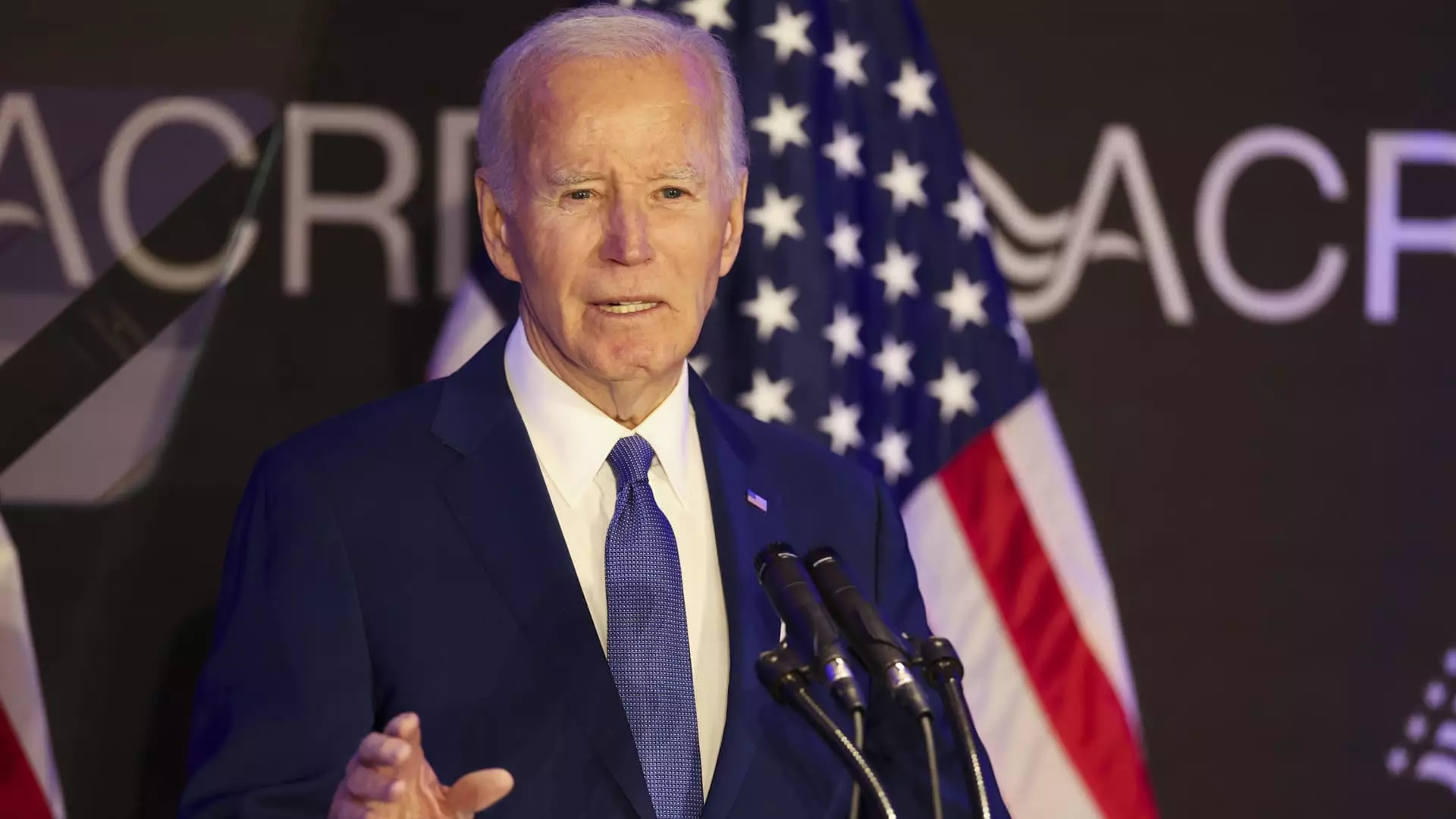The announcement that President Joe Biden has been diagnosed with prostate cancer resonates deeply within the fabric of American society, igniting both concern and empathy. The revelation came not from a distant perspective but rather through the immediate lens of political life, adding another layer to the challenges faced by an aging leader trying to navigate a notoriously turbulent political landscape. The news of a cancer diagnosis is heavy, but the implications of Biden’s health on the future of America are profound. At 82, Biden stands at the intersection of personal circumstance and national concern, and in that arena, he becomes emblematic of a larger narrative that is both personal and political.
The Aggression of Prostate Cancer
Biden’s condition, characterized by a Gleason score of 9, underscores the reality that he faces one of the more aggressive forms of prostate cancer. This specific score reveals that the cancerous cells are highly abnormal compared to healthy ones, suggesting a daunting uphill battle. The fact that the cancer has metastasized to his bones adds another layer of bleakness. While the cancer is hormone-sensitive, which allows for potential treatment options—including the privilege of having a fighting chance—this is more than just a personal health struggle; it’s a moment that invites ethical debates regarding aging leadership in high office. The unease surrounding his health status correlates with public discourse about the competencies of older politicians. Is it fair for society to demand a level of vigor and resilience that is often at odds with the natural aging process?
Politicians Unite: A Show of Humanity
Despite Biden’s contentious relationship with many in the political sphere—most notably former President Donald Trump—these events have sparked an outpouring of bipartisan support. Trump’s message of goodwill, alongside Vice President Kamala Harris’s optimistic assertions of Biden’s tenacity, illustrates a momentary departure from hyper-partisan attitudes. Such expressions are not mere tokens of goodwill but highlight an inherent humanity that can often be overshadowed by political rivalries. This collective empathy may symbolize what ought to be the forefront of political discourse: the notion that, beyond policies and party lines, the fragility of life offers a moment for reflection on common ground.
Aging and the Future of Leadership
Biden’s health casts a spotlight on the issue of aging in politics. The specter of declining health raises questions about endurance and capability at the highest levels of government. As Biden grapples with his prognosis, the media buzzes with speculation about the implications for his presidency and beyond. The backdrop of his prior skin cancer removal and potentially pre-cancerous polyps introduces a troubling narrative of health challenges that seem to compound with age. Not only does this place his potential reelection on shaky ground, but it also begs the question: is America ready to embrace leaders whose mortality shadows their decision-making power? Can we navigate a future where experience, wisdom, and age coexist harmoniously with the vigor often prized in younger counterparts?
A Legacy Beyond Politics
Biden’s commitment to a “cancer moonshot” initiative not only reflects personal stakes—the loss of his son Beau to brain cancer—but also encapsulates a larger message about resilience, legacy, and community health. By making cancer research a priority, Biden positions himself as a leader who is acutely aware of the impacts of the disease and its ripple effects on families and friends. However, one must question whether this mission can survive the complexities of his current challenges. Will Biden’s own battle with cancer generate momentum for his mission, or will it become an obstacle?
The Human Experience in Political Discourse
Ultimately, Joe Biden’s cancer diagnosis raises more than just health concerns; it compels a national reckoning with the nature of political leadership, empathy, and public accountability. While navigating the intricacies of health, personal relationships, and national responsibilities, Biden’s journey is set to redefine the narrative around aging leaders. As we witness this moment unfold, it invites us to reflect on our values: do we prioritize experience over the myth of invincibility? In a world fraught with division, Biden’s ongoing battle can inspire us to embrace the very essence of what it means to be human in the face of adversity.


Leave a Reply